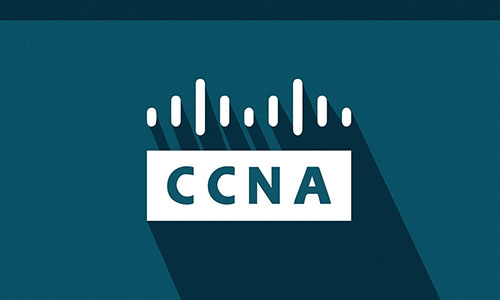CCNA is a certification that validates your skills and knowledge in networking. It is one of the most popular and respected credentials in the IT industry, and it can help you advance your career and increase your salary. In this blog post, I will share with you some tips and resources on how to prepare for the CCNA exam, based on my own experience and research.
The CCNA exam covers a wide range of topics, such as network fundamentals, network access, IP connectivity, IP services, security fundamentals, automation and programmability. You need to have a solid understanding of these concepts and be able to apply them in real-world scenarios. The exam consists of 120 questions and you have 120 minutes to complete it. The passing score is 825 out of 1000.
To prepare for the CCNA exam, you need to have a good study plan and practice a lot. Here are some steps that I followed and that helped me pass the exam on my first attempt:
- Review the exam objectives and blueprint. You can find them on the official Cisco website: https://www.cisco.com/c/en/us/training-events/training-certifications/exams/current-list/200-301-ccna.html. This will give you an overview of what topics are covered and how they are weighted.
- Get a good study guide or book. There are many books available that cover the CCNA exam topics in detail and provide practice questions and exercises. I used the official CCNA 200-301 Cert Guide by Wendell Odom, which I found very comprehensive and well-written. You can also use other books or online courses, depending on your preference and learning style.
- Watch video tutorials or lectures. Sometimes, it is easier to learn by watching someone explain a concept or demonstrate a skill than by reading a book. There are many video courses available online that cover the CCNA exam topics and provide visual examples and demonstrations. I used the CCNA 200-301 Video Boot Camp by Chris Bryant, which I found very engaging and informative. You can also use other video courses or YouTube channels, depending on your preference and budget.
- Do lab exercises or simulations. One of the best ways to learn networking is by doing it yourself. You need to practice configuring, troubleshooting, and verifying network devices and protocols using real or simulated equipment. This will help you develop your hands-on skills and prepare you for the exam questions that require you to perform network tasks or analyze network outputs. You can use physical devices if you have access to them, or you can use virtual devices or simulators if you don’t. I used Packet Tracer, which is a free network simulator provided by Cisco that allows you to create and test network scenarios using various Cisco devices and features.
- Take practice tests or quizzes. Another way to prepare for the exam is by testing yourself on what you have learned and identifying your strengths and weaknesses. You can use practice tests or quizzes that simulate the exam format and difficulty level, and that provide feedback and explanations for each question. This will help you assess your readiness for the exam and improve your test-taking skills and confidence. You can use practice tests or quizzes from books, online courses, websites, or apps, depending on your preference and availability.
- Review your notes and revise your weak areas. Before taking the exam, you should review your notes and study materials and focus on the topics that you are not comfortable with or that you tend to forget easily. You should also review the key concepts, terms, commands, formulas, diagrams, etc., that are essential for the exam. You can use flashcards, mnemonics, summaries, cheat sheets, etc., to help you memorize and recall important information.
- Relax and get enough sleep. Finally, you should relax and get enough sleep before taking the exam. You should avoid cramming or studying too much on the day before or on the day of the exam, as this will only stress you out and make you tired. You should also avoid caffeine, alcohol, or any other substances that might affect your mental state or performance. You should eat well, drink water, exercise lightly, meditate, listen to music, or do anything else that helps you calm down and feel good.
I hope these tips will help you prepare for the CCNA exam and achieve your certification goals. Remember that passing the CCNA exam is not impossible if you study hard, practice well, and believe in yourself. Good luck!
